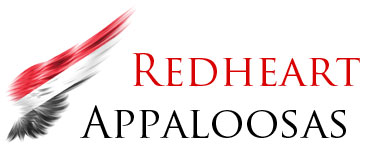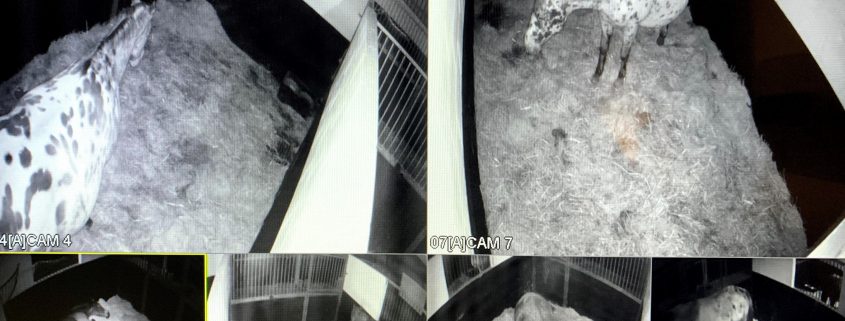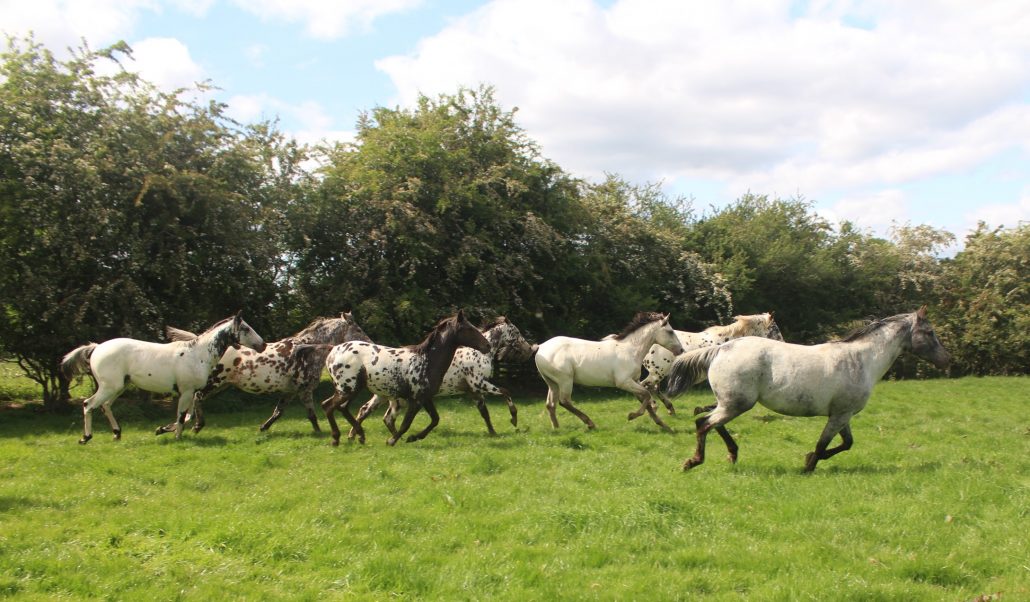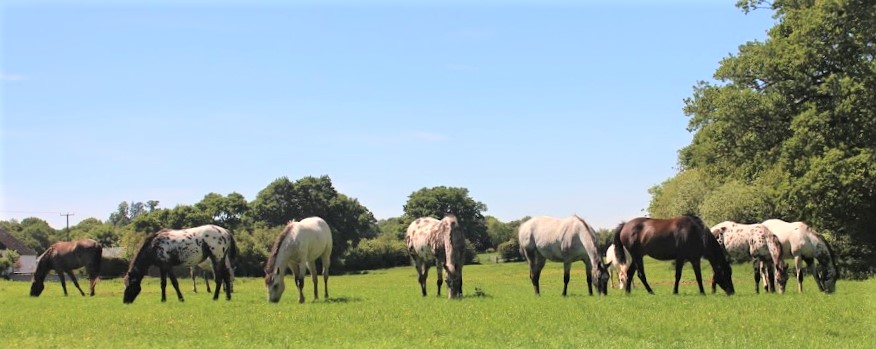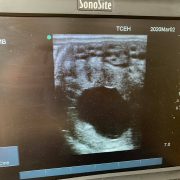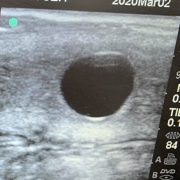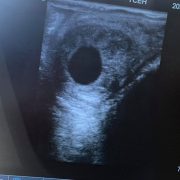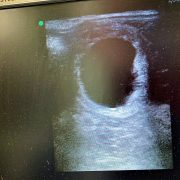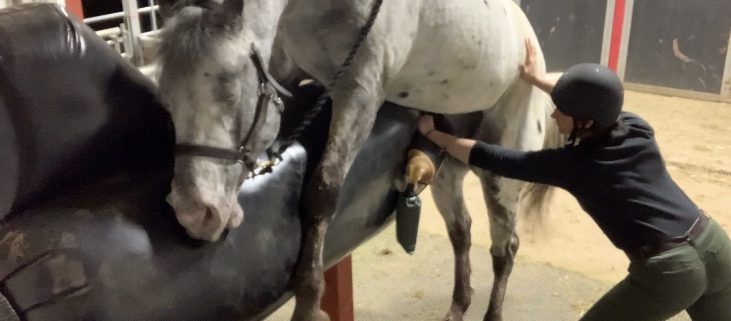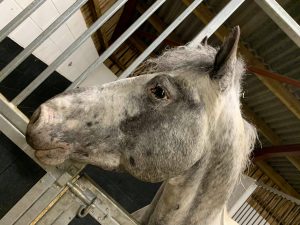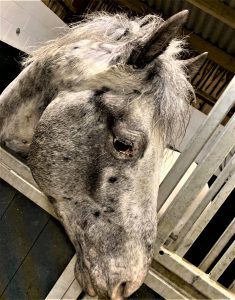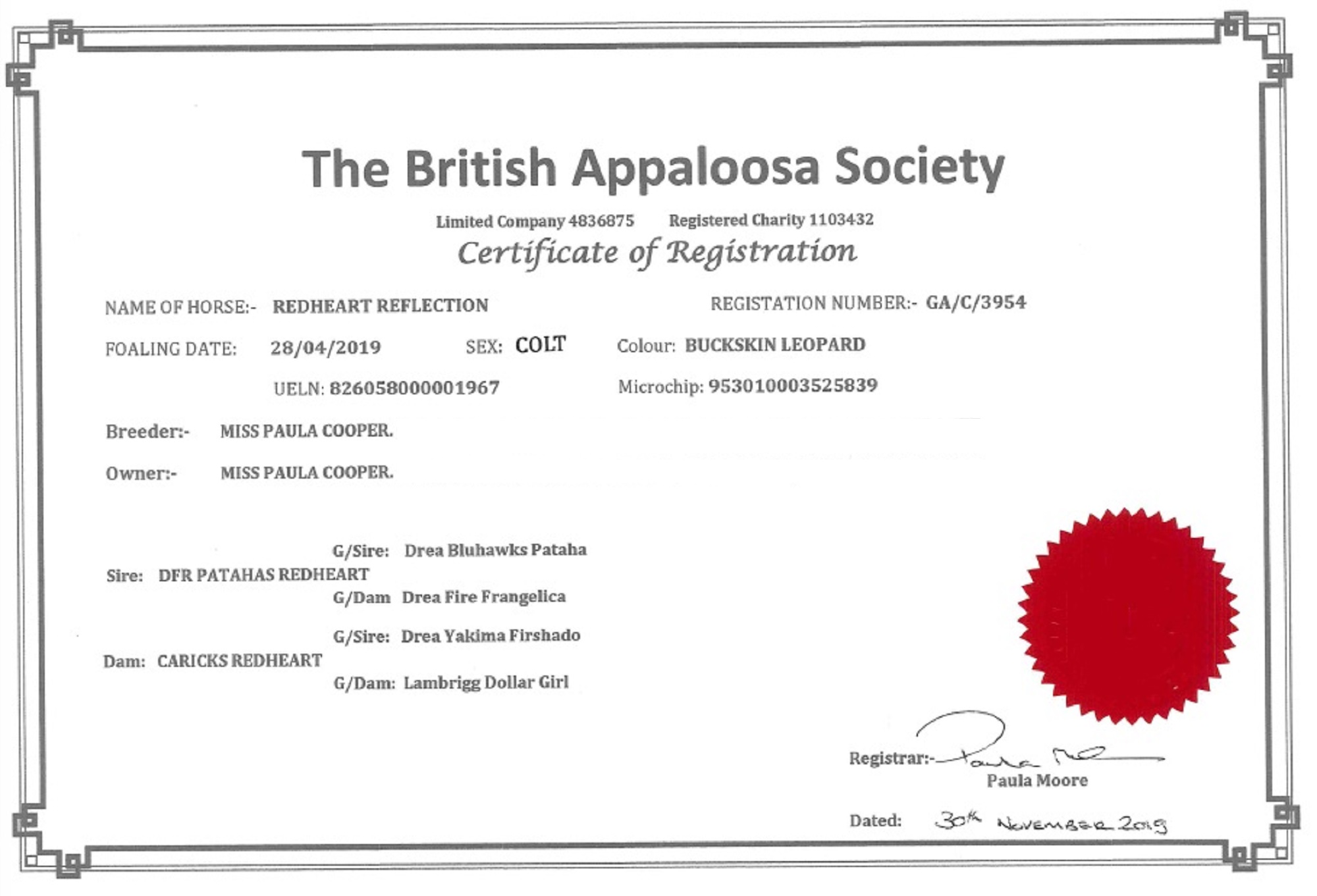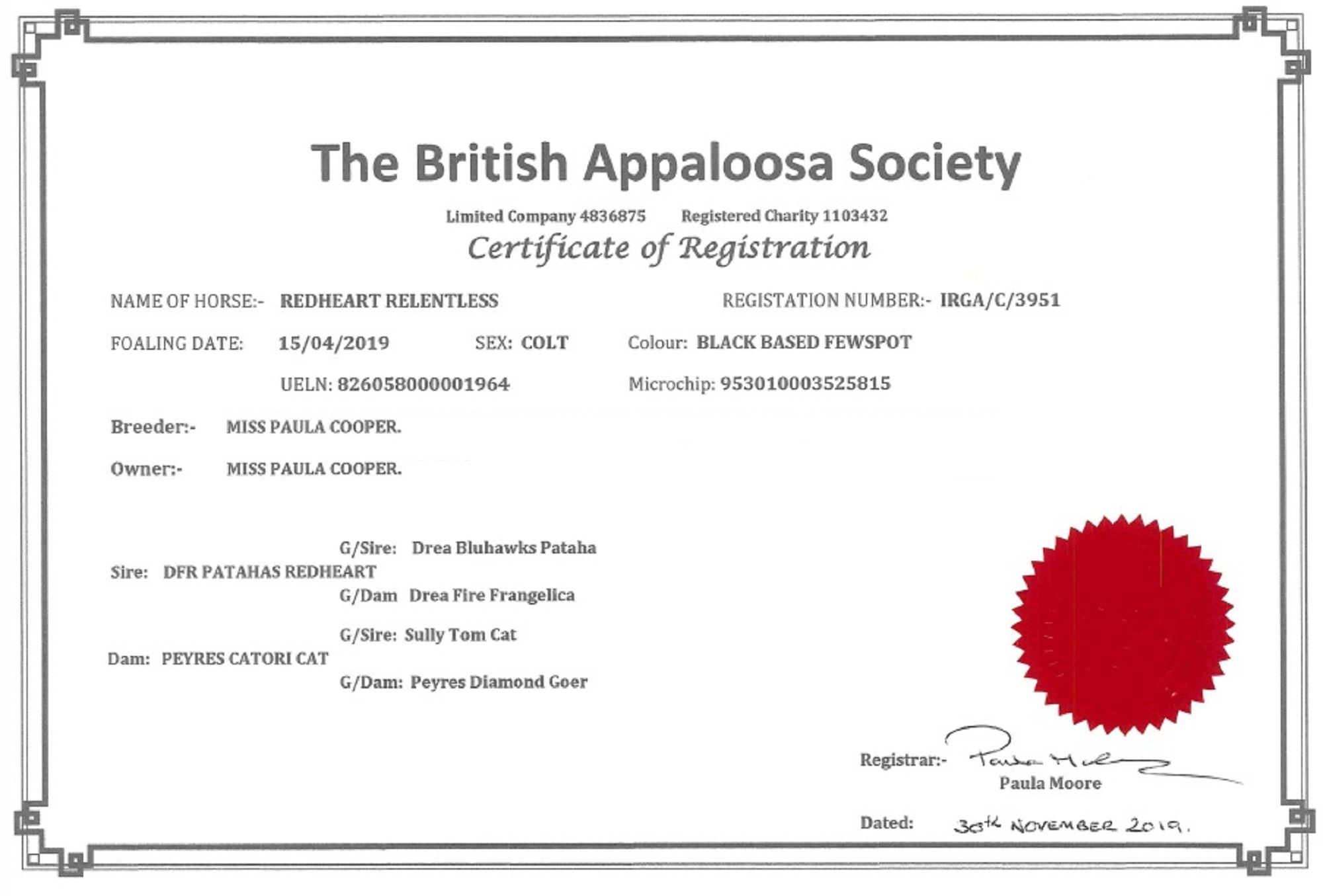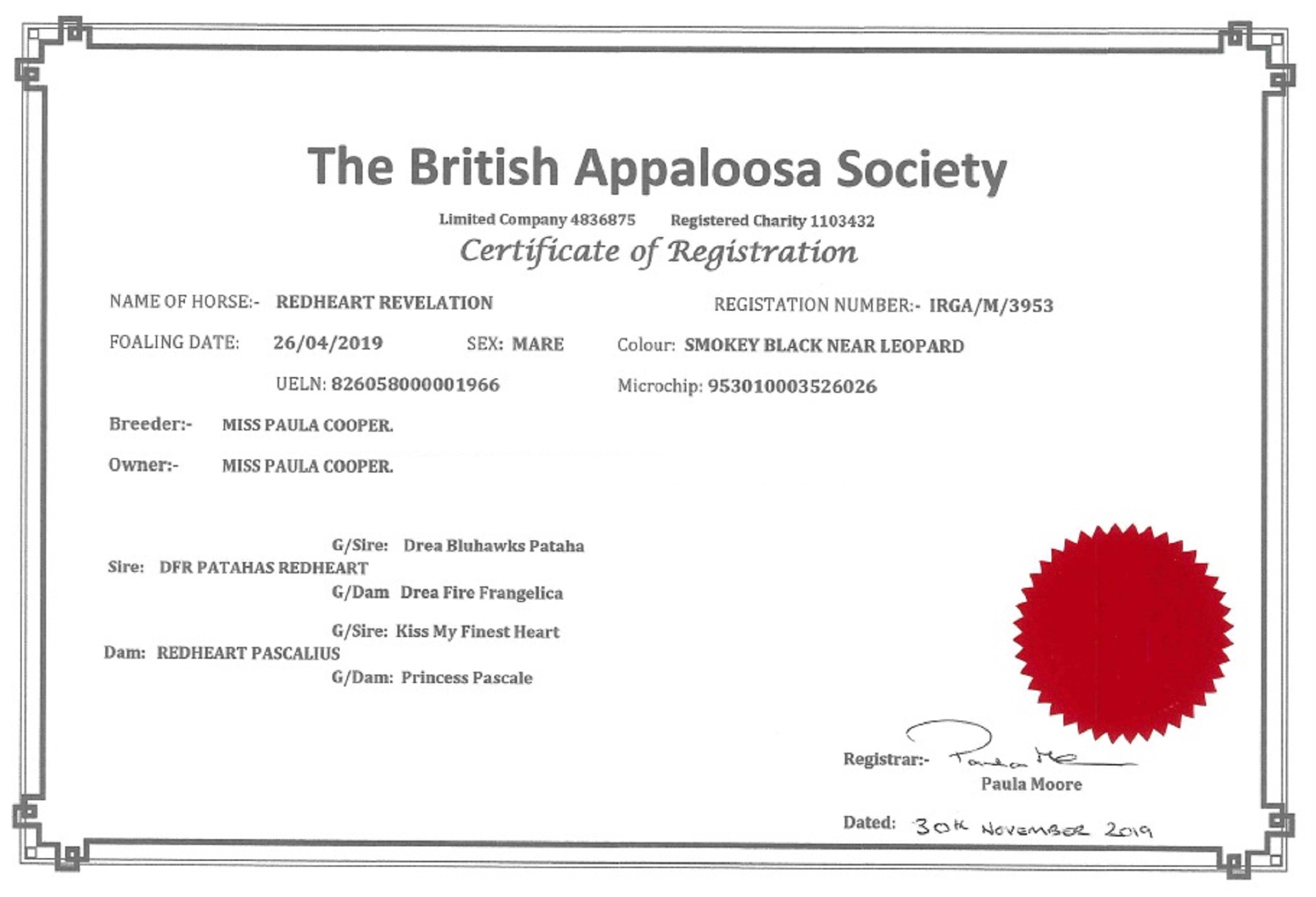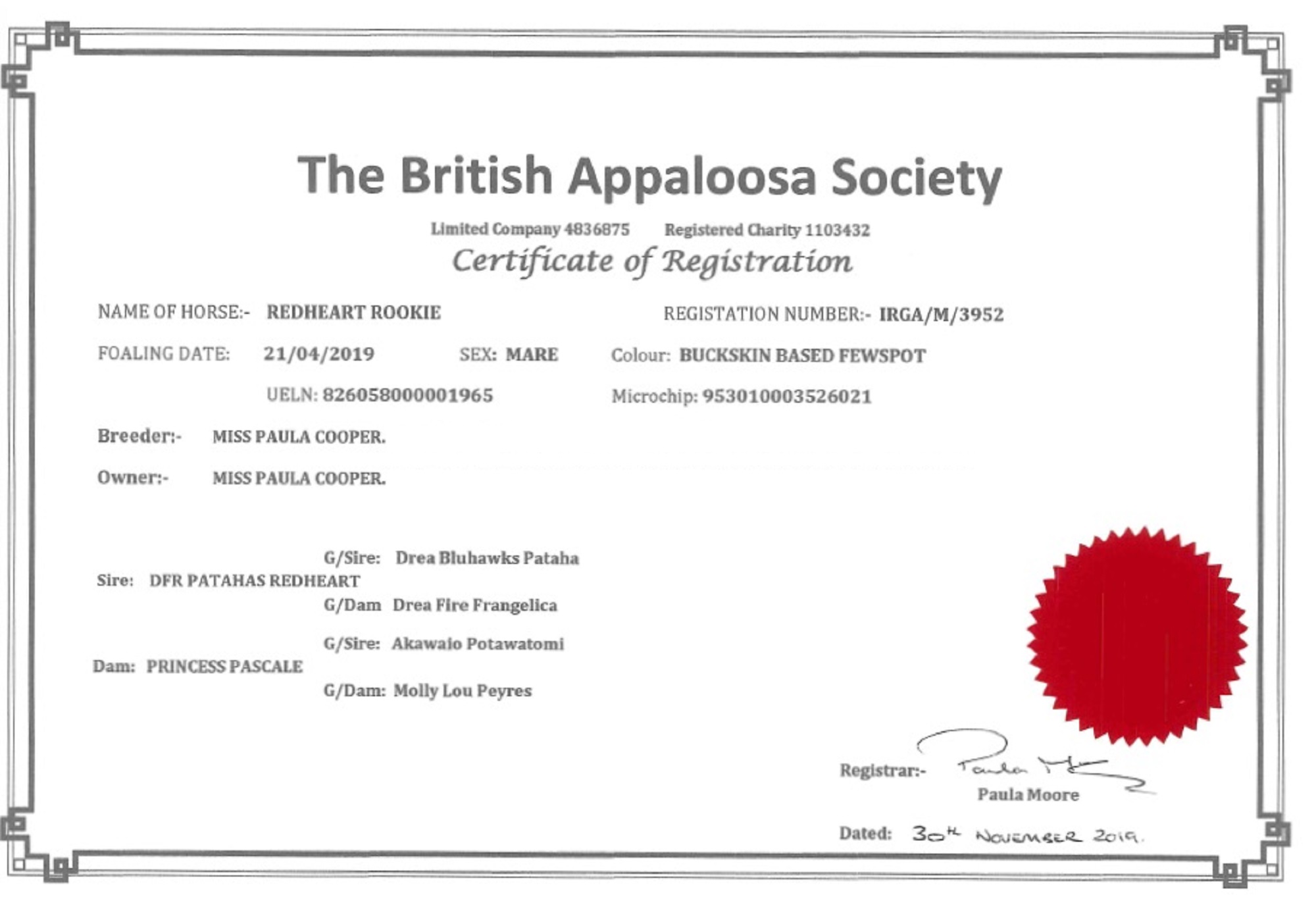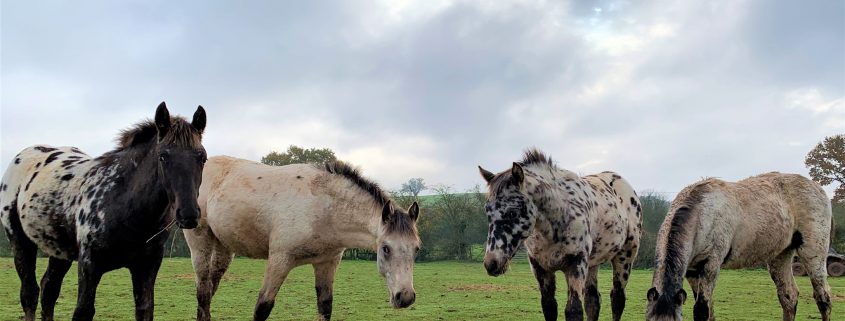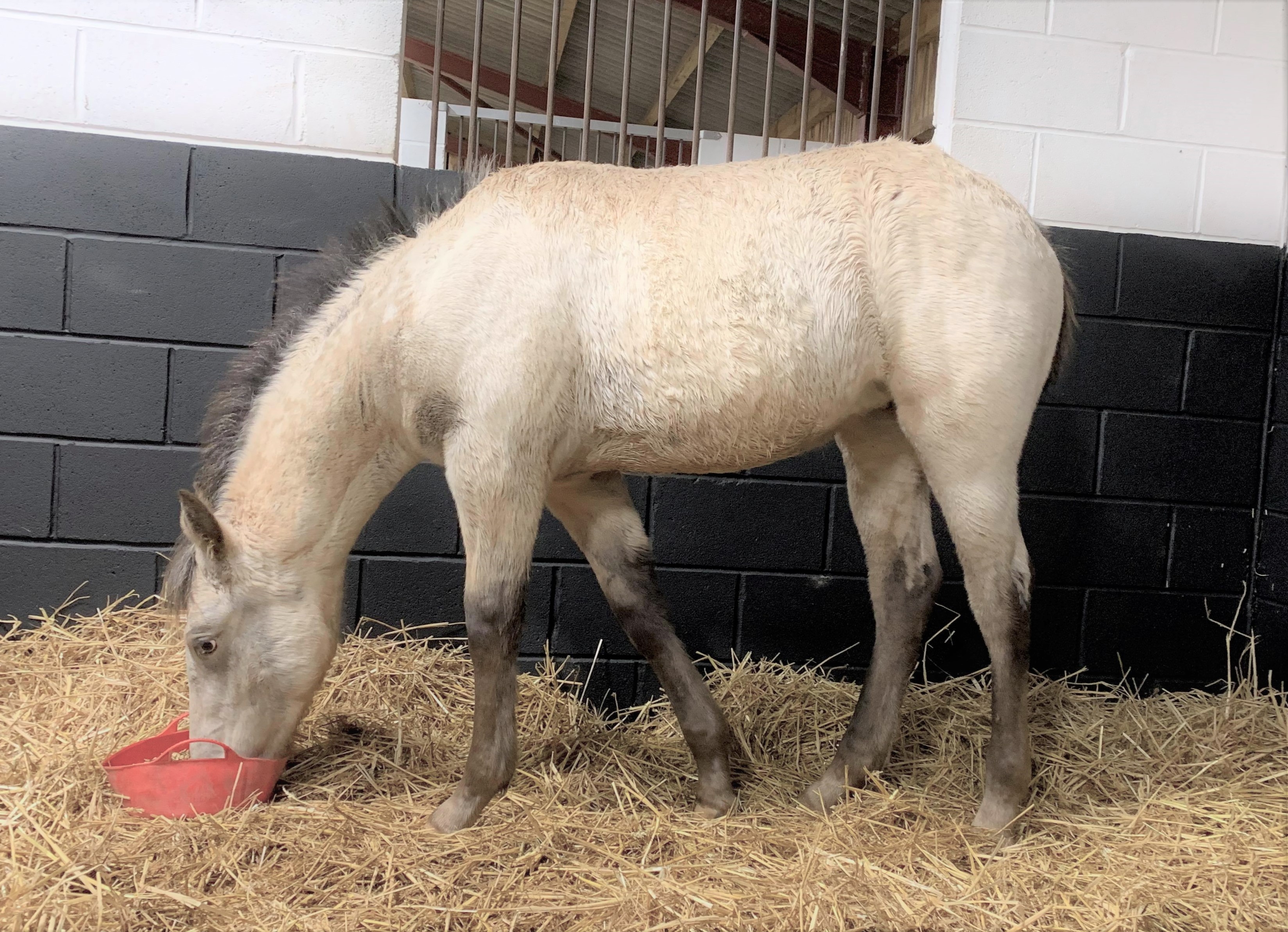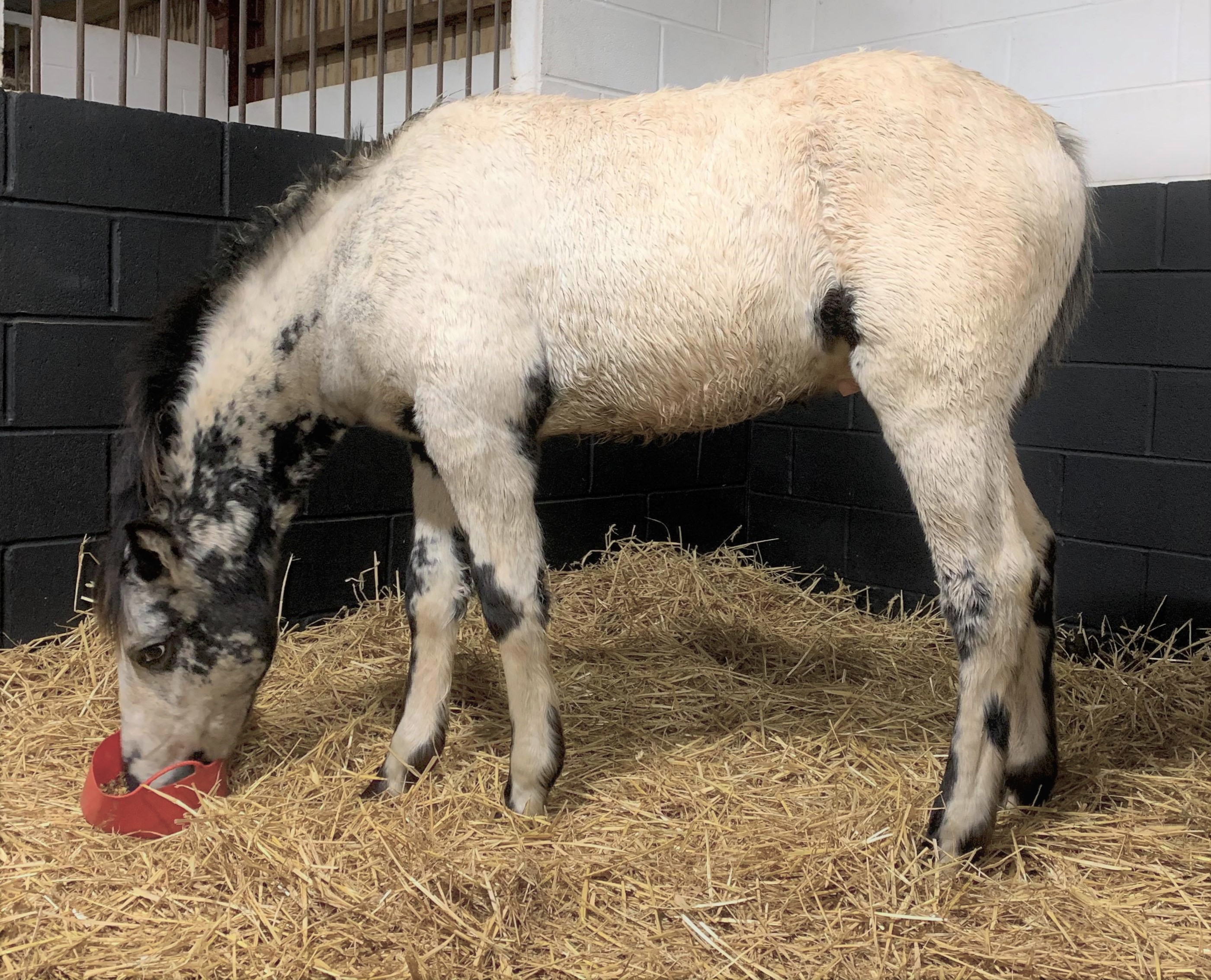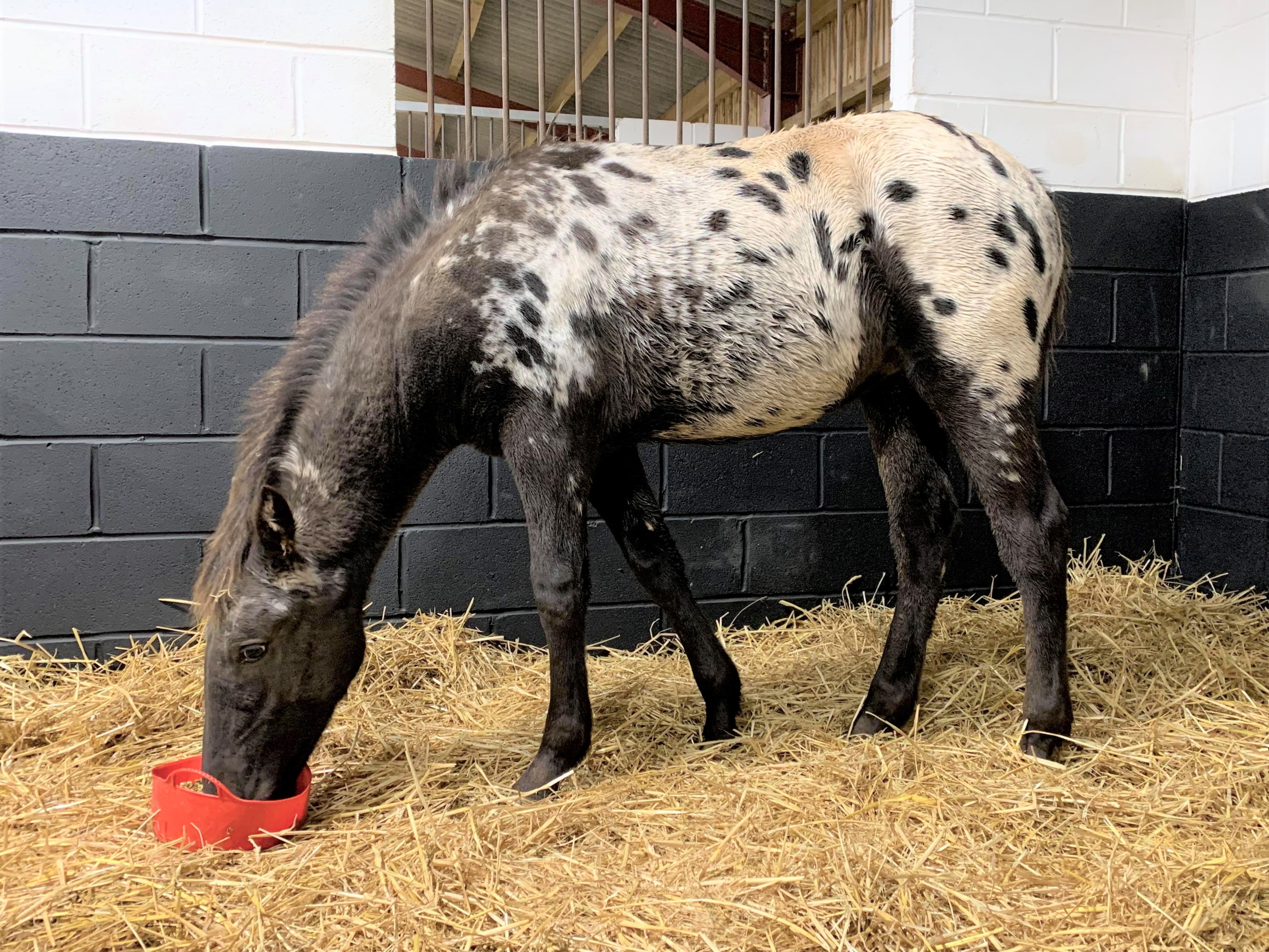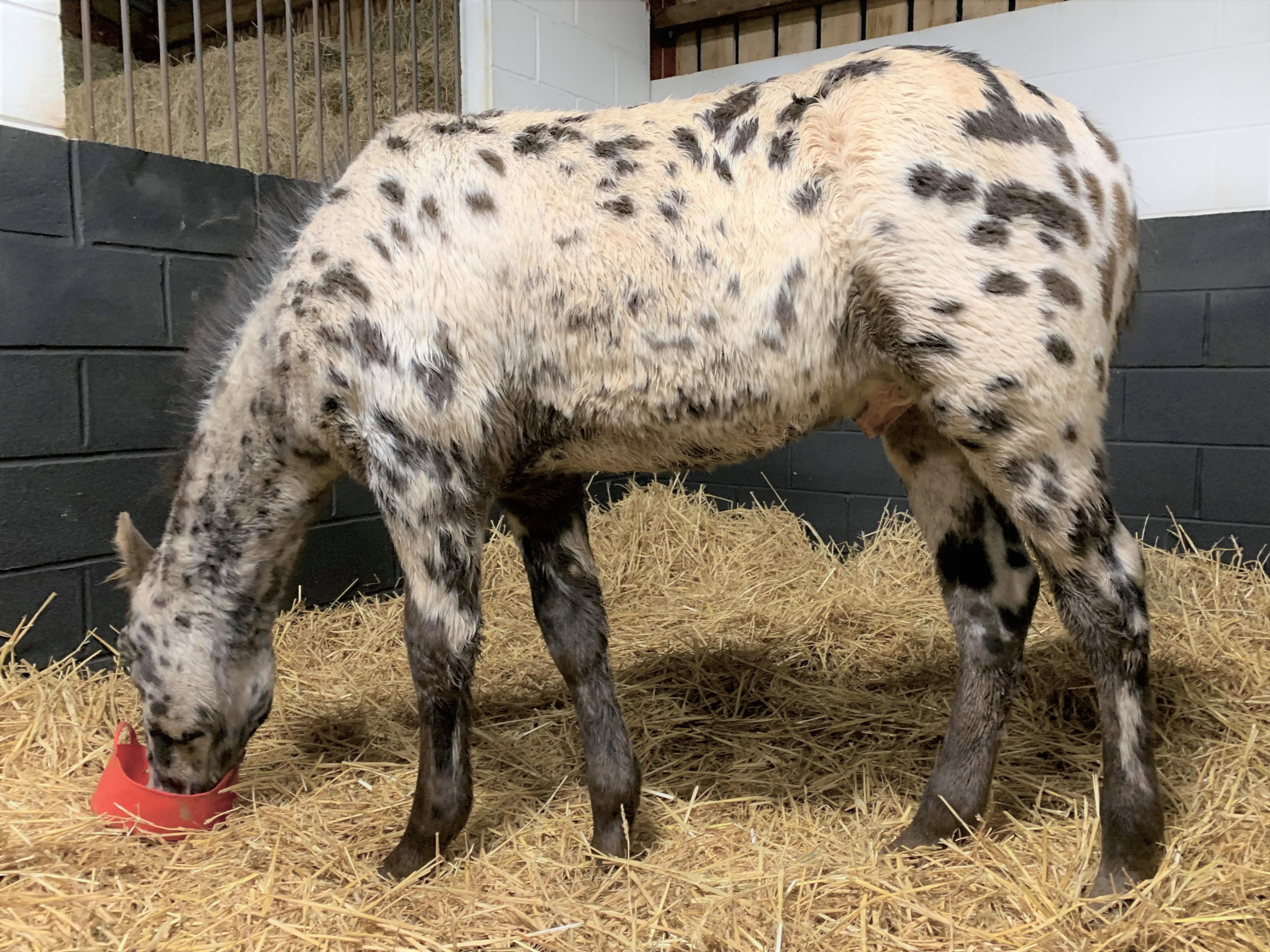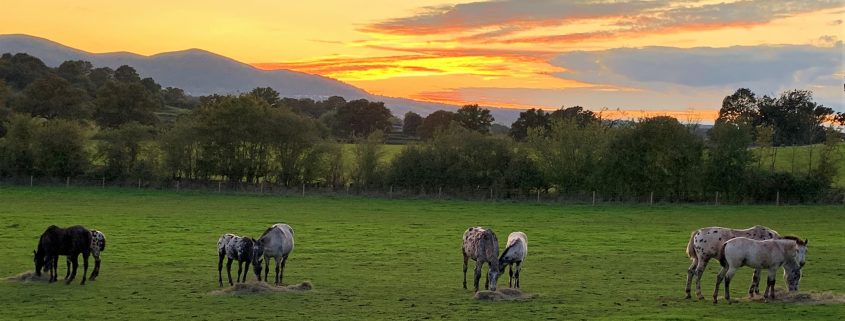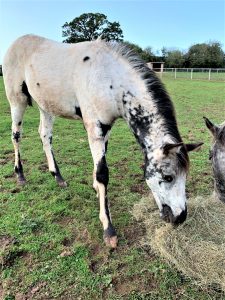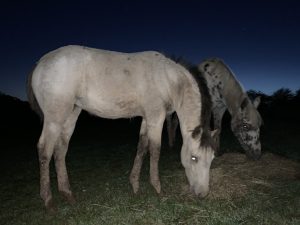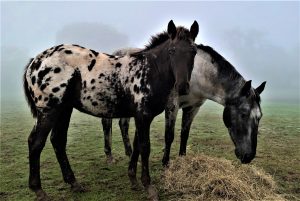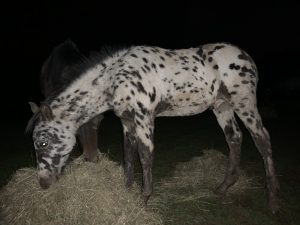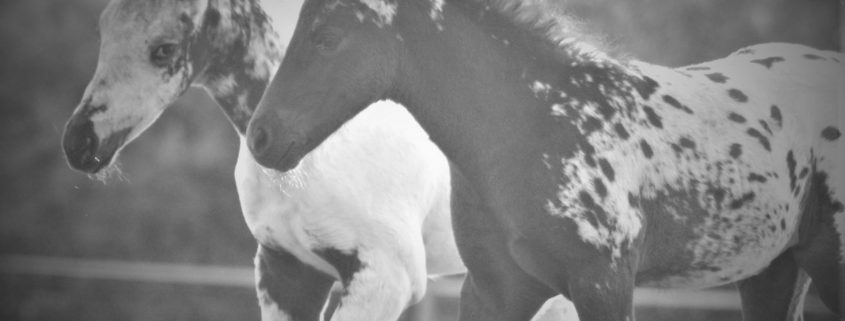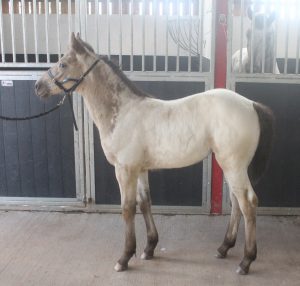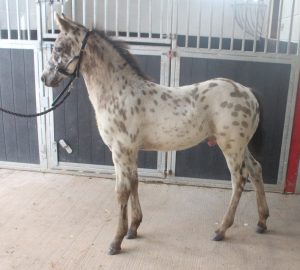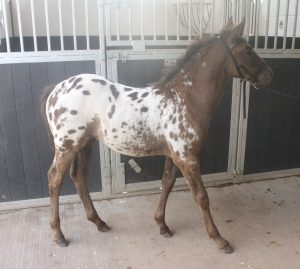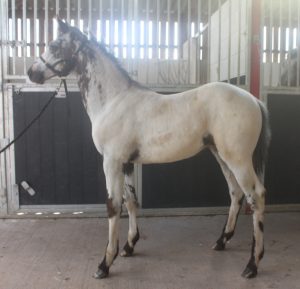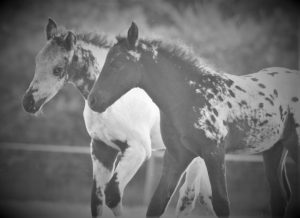Our Stallion – DFR Patahas Redheart certainly is a huge asset to our breeding plan.
Disregard the performance record, ignore the genetics reports, forget about conformation, and overlook the temperament and you are left with The Pedigree…
These horses in Blu’s pedigree are listed on The Appaloosa Horse Club Hall of Fame (established in 1986 to recognize the unique contributions and positive impact individual horses have made on the ApHC).
Thank you to Talisman Horses for this document – Ancestors
APACHE 1942 – ApHC Hall of Fame 1986 – Apache was known as “Performance Star Extraordinaire,” and his blood runs deep in some of today’s champions. 7 X Nat. Champ. named by The Horse Digest as 1 of the top 100 racehorses of all time, in any breed. Won either a Ch. or Res. Ch. Performance Horse title in each of the five National Shows he competed in. Won 16 of 19 race starts. 1948, 1949, & 1950 National Ch.
PRINCE PLAUDIT 1963 – ApHC Hall of Fame 1988 – Top sire with get winning in both halter and performance events. A two-time national Get-of-Sire Champion. Sired winners of one gold, three silver, and 19 bronze medallions. He sired 637 registered foals and 45 of his get also produced medallion winners. He won a bronze production plaque in 1976.
PATCHY 1939 – ApHC Hall of Fame 1986 – Bred in the ApHC’s first year and became known as the “picture horse” because of his vivid colour and correct conformation. Champion Stallion at the first National show. 1948 National Champion Aged Stallion & National Grand Champion Stallion, 1952 National Champion Performance Horse, 1953 National Champion Get of Sire 1955 & 1959 Res National Champion.
CHIEF OF FOURMILE 1952 – ApHC Hall of Fame 1988 – National Champion Performance Horse in 1955, 1956 & 1958, the only horse to win this title three times. National Race winner, Stakes Winner and World Champion Nez Perce Stake winner. A popular painting of this horse drew attention to the Appaloosa breed. He sired 107 registered foals.
JOKER B 1941 – ApHC Hall of Fame 1988 – The 1962 National Champion Get-of-Sire, and in the top three for Get-of-Sire in 1957, 1963, and 1966. World & National Champion Sire, Champion Running Sire X2, First place in the 220-yard race in 1956. Sire of 3 World Champions, 9 National Champions and 1 Running Champion. He was an influential sire, and during the 1960s this horse was greatly responsible for the promotion of the Appaloosa breed by way of his extensive campaigning and numerous public appearances. He sired 196 registered foals.
RED EAGLE 1946 – ApHC Hall of Fame 1988 – He was a charismatic horse and was the first National Champion Halter Horse. National Champion titles include Get-of-Sire and Aged Stallions, both in 1957. He greatly influenced West Coast activities during the 1940s and 1950s. He sired 74 registered foals.
SUNDANCE 500 1933 – ApHC Hall of Fame 1988 – He antedated the registry and was a popular sire. A participant in the U.S. Government’s remount program, he founded one of the more well-known leopard colour families, many of the leopard lines today may still be traced to him.
RED EAGLE’S PEACOCK 1953 – ApHC Hall of Fame 1996 – A two-time national halter champion, by earning a 1956 National Halter title. The stallion’s conformation was deemed so impressive that his image was frequently used as an ideal example of the Appaloosa horse.
PATCHY JR 1952 – ApHC Hall of Fame 2005 – Successful in the show ring and passed his talent along to his get, he sired 100 registered foals and had more than 30 halter and performance championships to his name when he retired from showing at age 12. The stallion won National titles in yearling stallions, 2-year-old stallions, 3-year-old stallions, trail, get of sire, National grand champion stallion, reserve champion stallion—twice, premier sire of performance horses and titles at the Colorado state fairs including grand champion stallion, English pleasure champion, western pleasure, trail, Camas Prairie stump race, Nez Perce stake race and heritage.
His descendants have competed in events from western pleasure to reining, gymkhana, racing and halter in the United States, Canada and Europe. Remembered as an athletic, versatile, and well-mannered champion and sire.
BAMBI E 1954 – ApHC Hall of Fame 2008 -. This stallion shaped much of South Dakota’s Appaloosa industry as his leopard colouring made him the first of his kind in the state, which drew much attention to the horse. The stallion’s sudden popularity caused a surging interest in Appaloosas. The stallion was named high-point performance and high-point halter stallion in South Dakota; he also won open reining classes in Scottsbluff, Nebraska, and Rapid City, South Dakota. His show career was short, but he was quite prolific as a sire of performance and halter horses and sired National Champions.
Our mares will add the following ApHC Hall of Fame Appaloosas to their progeny by DFR Patahas Redheart.
PEYRES CATORI CAT 2008:
THE EXECUTIVE 1973 – ApHC Hall of Fame 1993 – Who won every class he entered but one (he was reserve) and became National Champion Two Year-Old Stallion, he has more than 40 medallion winning sons and daughters, diverse in their talents as winners in halter, pleasure, jumping, reining, roping, cattle classes, trail, side saddle, and racing.
GOER 1973 – ApHC Hall of Fame 1994 – The all-time leading sire of Appaloosa foals, with 703 on record to date, GOER made an immeasurable impact on the Appaloosa breed–setting a standard for conformation that will remain for generations. To date, sire of over 48 bronze and two silver medallions, as well as 46 Register of Merits. His get have earned 11,655 points in open, youth, and non-pro competition, with 6,974 of those points earned at halter.
PRINCESSE PASCALE 2009 & REDHEART PASCALIUS 2013:
DOUBLE SIX DOMINO 1943 – ApHC Hall of Fame 1988 – With limited showing, he was a National Champion Get-of-Sire in 1970 and placed in the top five in Get-of-Sire in 1960, 1962, and 1964. He sired many colourful winners in halter, performance, and racing–including 246 registered foals with a collective total of 23 performance points, one Register of Merit and one bronze medallion.
BRIGHT EYES BROTHER 1950 – ApHC Hall of Fame 1988 – Said to have charisma and style, lightly shown but greatly influenced the development of the breed. He sired 128 registered foals, and four bronze medallion winners–one of which accumulated 69 halter points.
MIGHTY BRIGHT 1960 – ApHC Hall of Fame 1988 – He impacted the breed substantially. Though injured as a youngster, he was an outstanding sire with offspring winning consistently. He sired 188 registered foals, including six bronze medallion winners in halter and performance and a total of 54 performance and 16 halter points.
CARICKS REDHEART 2014:
WAPITI 1955 – ApHC Hall of Fame 1988 – He became one of the breed’s most influential foundation sires. He placed in the top three in the Get-of-Sire class, 1968-1970, sired 218 registered foals with a total of 268 performance points (by four horses), 192 halter points (by eight horses), six bronze medallions, five Register of Merit winners, one Superior Halter and two Superior Performance winners.
BRIGHT EYES BROTHER 1950 – ApHC Hall of Fame 1988 – Said to have charisma and style, lightly shown but greatly influenced the development of the breed. He sired 128 registered foals, and four bronze medallion winners–one of which accumulated 69 halter points.
THE EXECUTIVE 1973 – ApHC Hall of Fame 1993 – Who won every class he entered but one (he was reserve) and became National Champion Two Year-Old Stallion, he has more than 40 medallion winning sons and daughters, diverse in their talents as winners in halter, pleasure, jumping, reining, roping, cattle classes, trail, side saddle, and racing.
RUSTLER BILL 1954 – ApHC Hall of Fame 1996 – 33 grand champion stallion titles and make his permanent mark on Appaloosa history as one of the earliest pace setters for show horse competition. Among his get were halter and performance champions.
These horses are well recognised within the Bloodlines of the Appaloosa World, noted for more than outstanding performance, they appear in ALL our Redheart Foals.
TOBY I 1936 – ApHC National Champion Get of Sire, 1948 ApHC National Champion Performance Horse,
1948 ApHC National Champion Men’s Western Pleasure, 1948 ApHC National Champion Ladies Western Pleasure,
1948 ApHC National Champion Matched Pairs with Son Toby II and Sire of ApHC National Halter and Performance Champions.
TOBY II 1939 – National Champion Most Colourful Mount and Rider, 1948 ApHC National Champion Matched Pairs with Sire Toby I, 1948 ApHC National Champion 330 Yard Race, 1948 ApHC National Champion 1/4 Mile Race
ApHC National Champion Sire.
TOBY III 1944 – Multiple ApHC National Champion & ApHC National Champion Sire
TOBY IV 1953 – Champion 1955 Two yr. old stallions
FREELS CHICO 1947 – 1950 National Grand Champion Stallion; 1951 Res National Grand Champion Stallion & National Champ Get of Sire; 1954 Nat Champ Wallowa Windfall Race & Nat Champ Color; 1959 Nat Champ Eng Pleasure.
CHIEF CHELSEA 1947 – Sire of National Champions.
DUN ROVEN CHELSEAS IMAGE 1968 – National & World Top 10 Producer Sire of 2 X CRHA National Champions – Multiple R.O.M. producer.
Other Appaloosas noted historically, KNOBBY 1918 – AKA The Lamb Horse, FIRE EYES 1840 – Nez Perce owned and
BLUE HAWK 1898 – Ghost Wind Stallion plus lots of Appaloosas owned from the Sam Fisher Herd.
His blood lines are traced back with the Foundation Appaloosa Horse Registry at 92.9687%, he has a great history of Foundation horses behind him, from the first 8 Stud Books of the ApHC.
DREA Bluhawks Pataha FAHR #939 90.625%, DREA Fire Frangelica FAHR#938 95.3125%, DREA Comanchebluhawk FAHR#140 93.75, OaksPatchy Cloud FAHR #50 87.5%, Pratt Sully Fire FAHR #49 96.875%, DREA Blucomanchemaid FAHR #58 93.75%, KK’s Blu Phoenix FAHR #217 90.625%, Pratt Sul IM Tobena ApHC #522075 96.875%, Oakselah ApHC T346587 75%, SS Stillwater ApHC #266140 100%, Kemos Fire Shadow FAHR #18 100%, Pratts C Girls Im ApHC #422619 93.75%, KK’s Blu Phoenix FAHR #217 90.625%, Pratt Sul Im Tobena ApHC #522075 96.875%, Oklahomas Fly Boy ApHC #82099 100%, Kaniksus Karalea ApHC #498785 81.25%, KC Choc Chip “CC” ApHC #450182 93.75%, Pratts Sul Ima ApHC #448934 100%, Daymon ApHC T102655 75%, Lebars Kanina ApHC #452404 75%, XR’s War Bonnet ApHC #15048 100%, Running Water ApHC #162880 100%, Minindoka Snowy Britches ApHC #153025 100%, Kemo’s Kaprice ApHC #157145 100%, Pratts Sully Saska #167783 100%, Pratt Chelse Girl #331837 87.5%, Oklahomas Fly Boy ApHC #82099 100%, Kaniksus Karalea ApHC #498785 81.25%, KC Choc Chip “CC” ApHC #450182 93.75%, Pratts Sul Ima ApHC #448934 100%, Oklahoma F2398 100%, Shawnee City Sue #7171 100%, Kaniksus Spots #280805 87.5%,Kaniksus Krissie T304932 75%, KC Chipo Plaudit #376128 87.5%, Freckles Joker #377738 100%, Dun Roven Chelsea’s Image #191 100%, Pratts Sully Paty ApHC #298956 100%, Tumalo ApHC #46684 100%, Mona’s Daydream ApHC ID1675 50%, Wolf’s Tiny Bar ApHC #96409 50%, Wolf’s Bobby Socks ApHC T23648 100%, Surprise Patch F1677, Modock Ellie #5371, Warren’s Tribal Dance #48985, Radar’s Tonya #112601, Snake Rivers ApHC T220160 100%, Smokey Rock #42243, Thunder’s Kemosabe #52819, Centaur Ota Onspa #42688, Sully’s Chavelle #83964,Saska Chiquita #13049, Dun Roven Chelsea’s Image #191 100%, Pratts Sully To Geta #261150, Oklahoma F2398 100%, Shawnee City Sue #7171 100%, Kaniksus Spots #280805 87.5%, Kaniksus Krissie T304932 75%, KC Chipo Plaudit #376128 87.5%, Freckles Joker #377738 100%, Dun Roven Chelsea’s Image #191 100%, and Pratts Sully Paty ApHC #298956 100% in the first 6 generations.
Our breeding horses pedigrees can be seen here:
DFR PATAHAS REDHEART
HEVANS EV CATORRIUS
PEYRES CATORI CAT
PRINCESSE PASCALE
REDHEART PASCALIUS
CARICKS REDHEART
TALISMANS REDHEART
